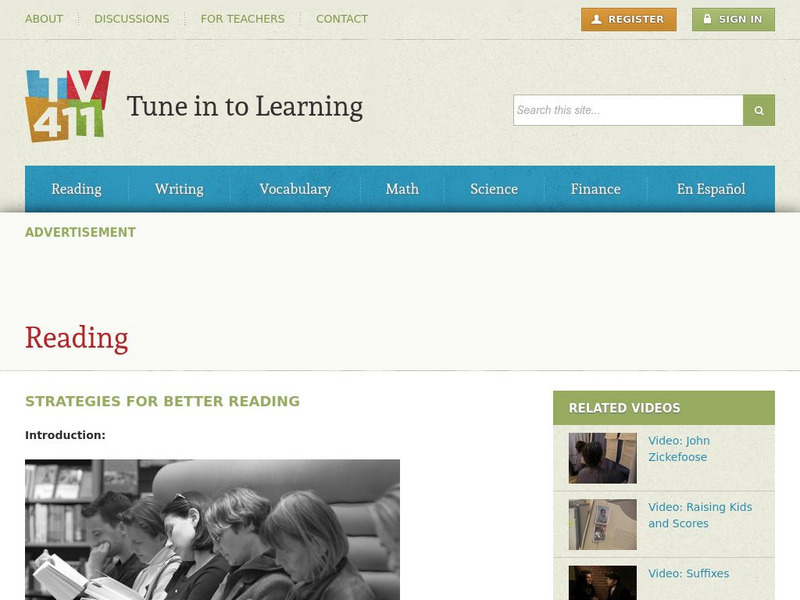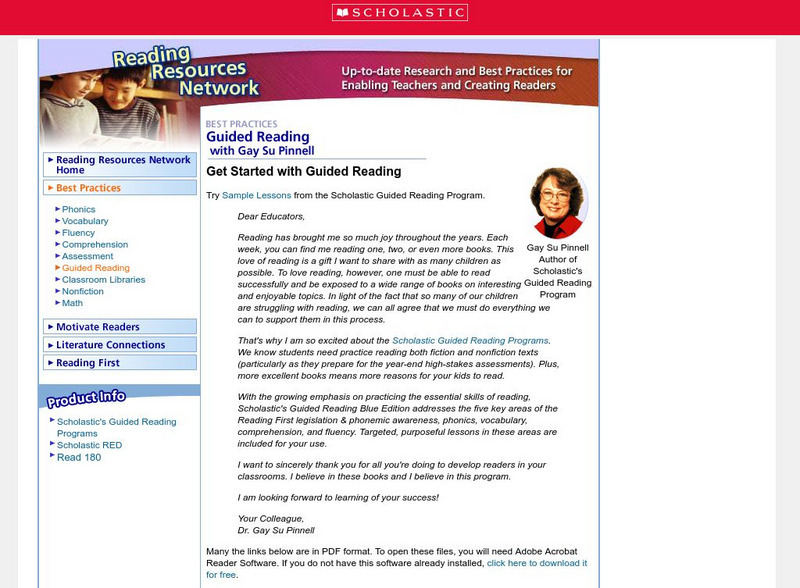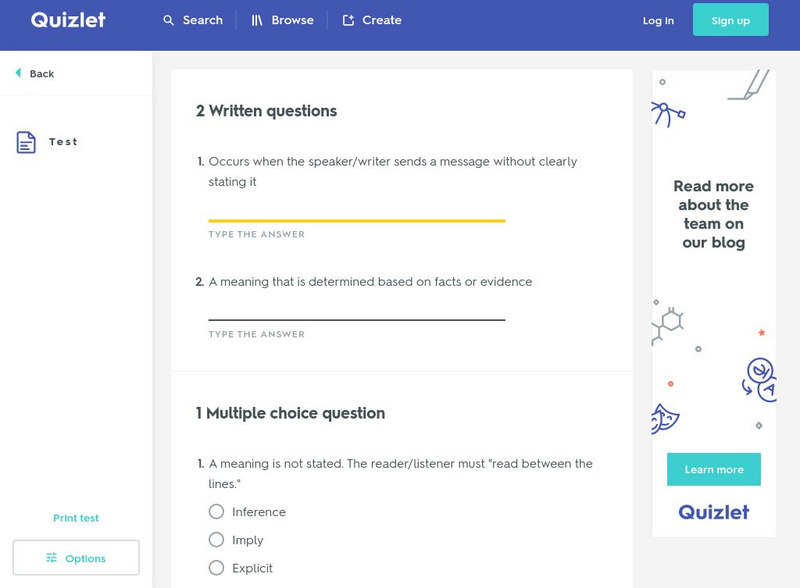Curated OER
Poetic Expression
Ninth graders evaluate the effectiveness of literary techniques including figurative language.
They demonstrate an understanding of the main ideas, events, or themes of a variety of novels, stories, poetry, other print material, and...
Curated OER
The foreign and domestic policies of Lyndon B. Johnson
Eleventh graders study and evaluate the successes and failures of LBJ's domestic and foreign policies. They formulate historical questions and defend findings based on inquiry and interpretation. Each student identifies, analyzes and...
Curated OER
Photoelectric Devices
Fourth graders view a teacher-made PowerPoint presentation on how photoelectric devices work, and then they answer FCAT-like questions on the material presented. They answer questions about what they viewed in an assignment imbedded in...
Curated OER
Inventors Unit Survey
Students develop and conduct a survey for their inventors unit. They create a five question survey and tally the survey results, and create a graph using Microsoft Word and Graph Club 2.0.
Curated OER
Language Arts- Word Origins
Sixth graders locate, access, and select appropriate information from a variety of resources, including electronic sources. They analyze the audience and purpose of the task to make decisions about content and format.
Curated OER
Primary Sources
Pupils write personal facts on a photograph of themselves to create a Primary Source. They then define Primary Source and list examples as a class of places where they could find primary sources. They also discuss the importance of...
Curated OER
From Home to Nome
Third graders develop and create an electronic portfolio on their hometown, school, and themselves to send to a school on the Iditarod Trail. They gather information from the Internet, printed materials, and a digital camera.
Curated OER
Memories
Fifth graders collect artifacts of their fifth grade school year and make a technology based Memory Book.
Curated OER
Biographical Essay
Tenth graders explore the importance of the environment and ow fragile it is.
Curated OER
The Time I Got Lost
Third graders go through the writing process but substitute paper and pencil with the computer to create a story about "The Time I Got Lost".
Curated OER
Themes and Patterns of History
Fourth graders, in groups, explore recurring historical and geographical themes.
Curated OER
Following a Monster
Learners follow tracks of a monster who has walked through their classroom to see what he has done. They discuss sequencing vocabulary before using computer software students sequence the monster's visit using a concept map. In a word...
Curated OER
A Journey To Africa: Art And Artifacts
Middle schoolers create a multimedia presentation based on a piece of African Art. They use the art piece to demonstrate the culture and ceremonies of the area in which it was produced. They research facts for a Power Point, write a...
E Reading Worksheets
E Reading Worksheets: Inferences Worksheets
In this learning module, students will learn more about making inferences. Worksheets are provided to reinforce the skill of making inferences. This module is designed to support Tier I, Tier II, and Tier III students.
Reading Rockets
Reading Rockets: 103 Things to Do Before/during/after Reading
The highly-respected Reading Rockets program offers both teachers and students a toolkit of ways to connect more actively with the materials they read. Some of these techniques are specifically for fiction-reading, others are designed...
Annenberg Foundation
Annenberg Learner: Journey North: Reading Strategies: Make Inferences and Draw Conclusions
Learn how to go beyond the literal meaning of a text by using a list of guiding questions to make inferences and draw conclusions.
Education Development Center
Tv411: Tune in for Reading: Reading: Strategies for Better Reading
Self-checking interactive tutorial puts reading comprehension skills to work by asking learners to make inferences, predict what happens next, and identify the main ideas in a series of short reading passages. Related materials include...
Scholastic
Scholastic: Getting Started With Guided Reading
How do you get started with guided reading? At this site one can find the answer to this question. The online lesson plans will help get students started with guided reading.
AdLit
Ad lit.org: Teach the Seven Strategies of Highly Effective Readers
To improve students' reading comprehension, teachers should introduce the seven cognitive strategies of effective readers: activating, inferring, monitoring-clarifying, questioning, searching-selecting, summarizing, and...
PBS
Pbs: Multiple Methods of Reading Instruction
This article surveys three strategies to incorporate into classroom repertoire. They include guided reading, choral reading, and readers' theater.
Tom Richey
Slide Share: Prediction and Inference: A Reading Strategy
This downloadable slideshow focuses on prediction and inference including the similarities and differences between them, when the reader does each, and questions to ask as you are reading.
Other
Wisconsin Educational Communication Board: Into the Book
This series of videos and interactive activities provide an excellent set of resources for teaching or learning the 8 research based reading strategies provided here. After receiving your "key" you can investigate the features inside and...
Quizlet
Quizlet: Explicit, Implicit, Imply, Infer, Inferences Match
This interactive game of "Match" assesses students' knowledge of definitions associated with names of reading strategies. Students will match the correct reading strategy [explicit, implicit, imply, infer, inferences] to their...
Quizlet
Quizlet: Explicit, Implicit, Imply, Infer, Inferences Test
Reading strategy terms are included in this review exercise. An assessment is provided for the following words: explicit, implicit, imply, infer, and inferences. Five multiple choice questions are provided on this assessment.























